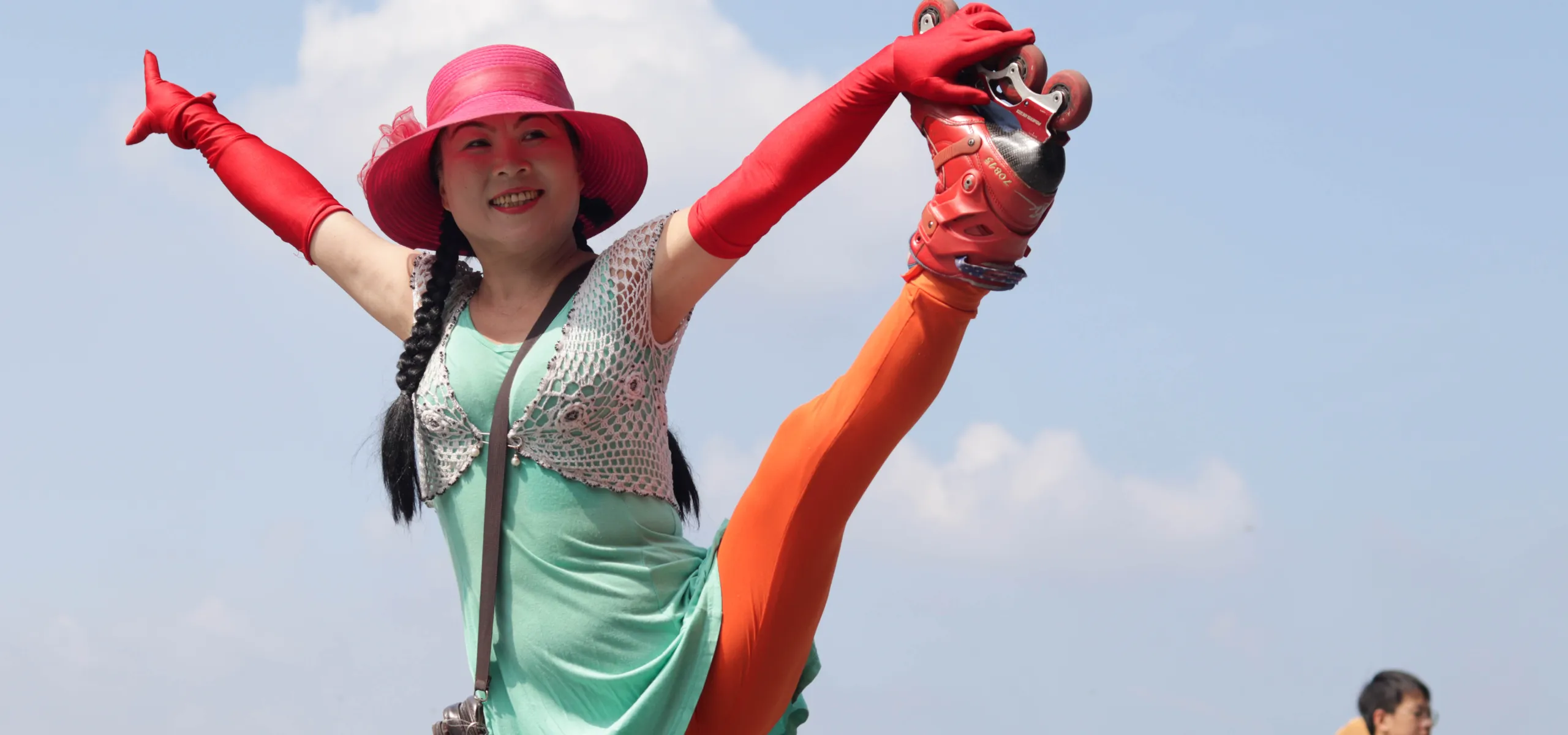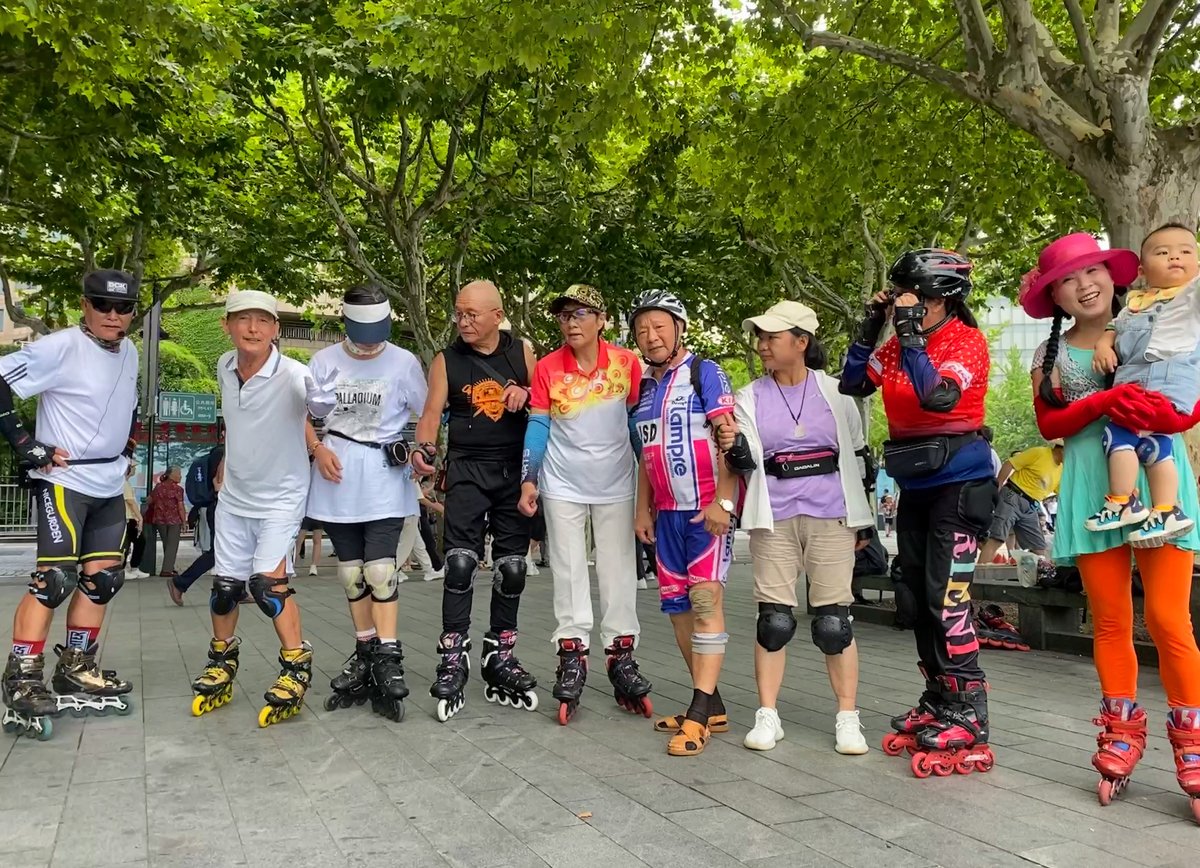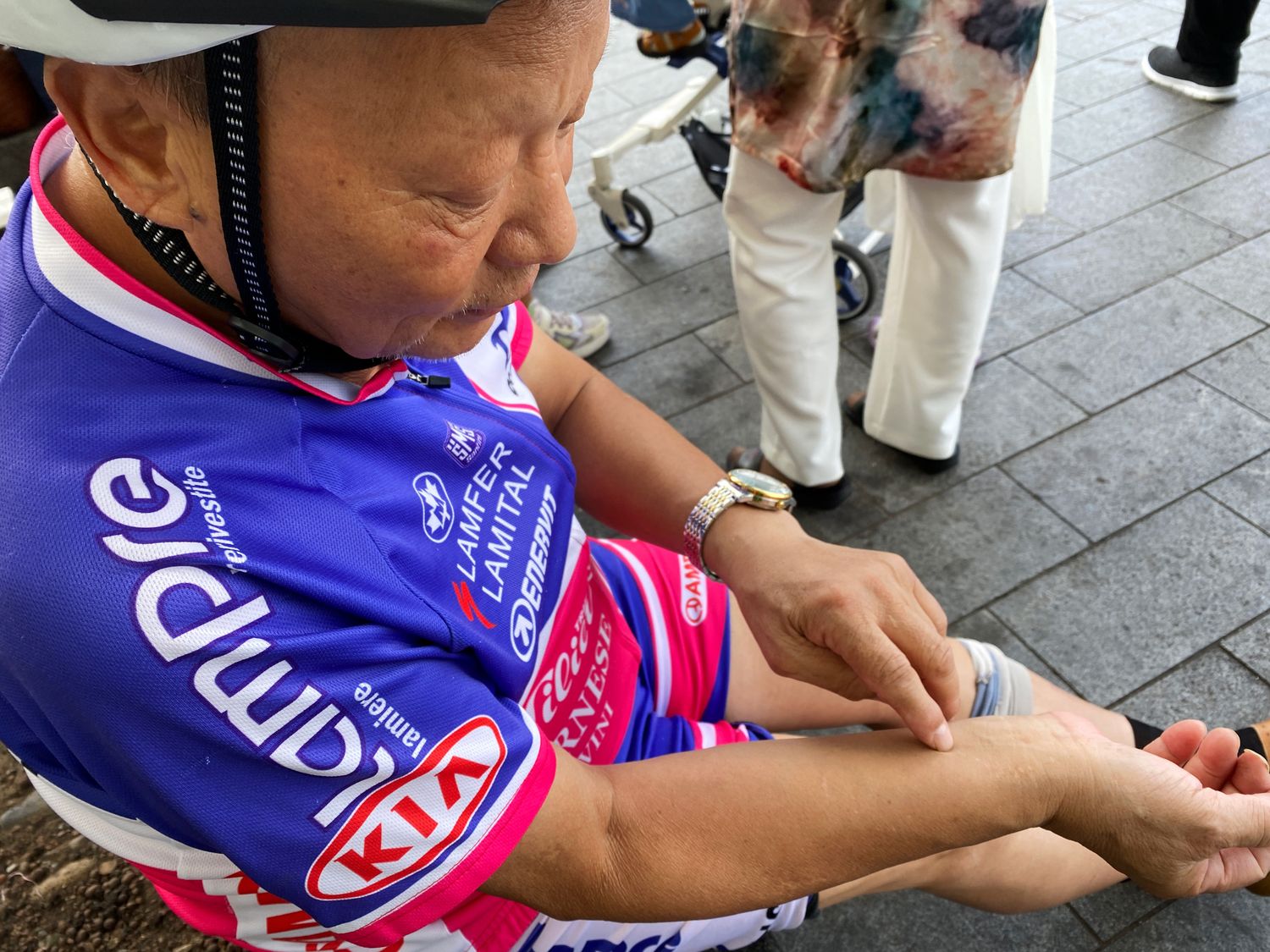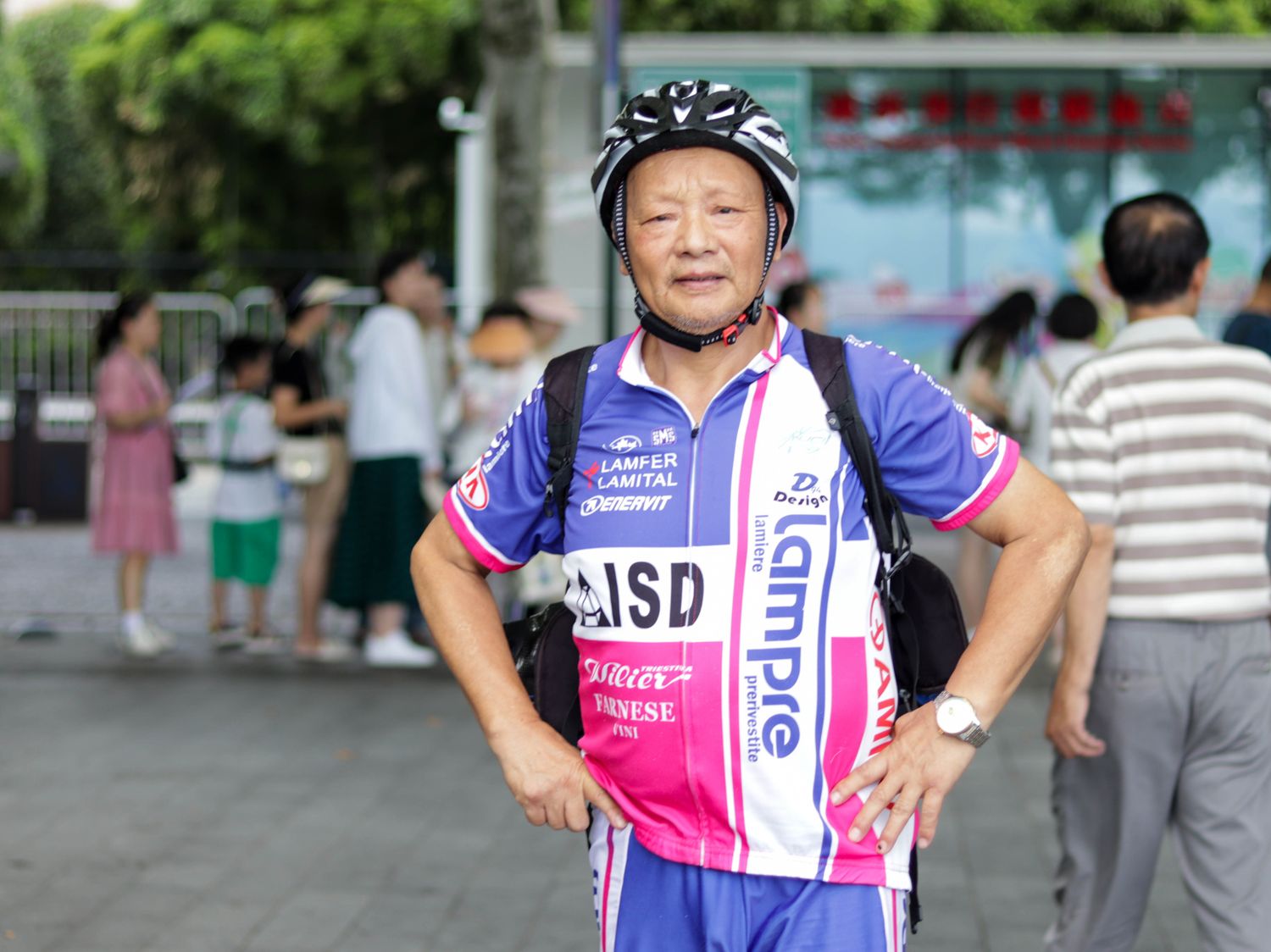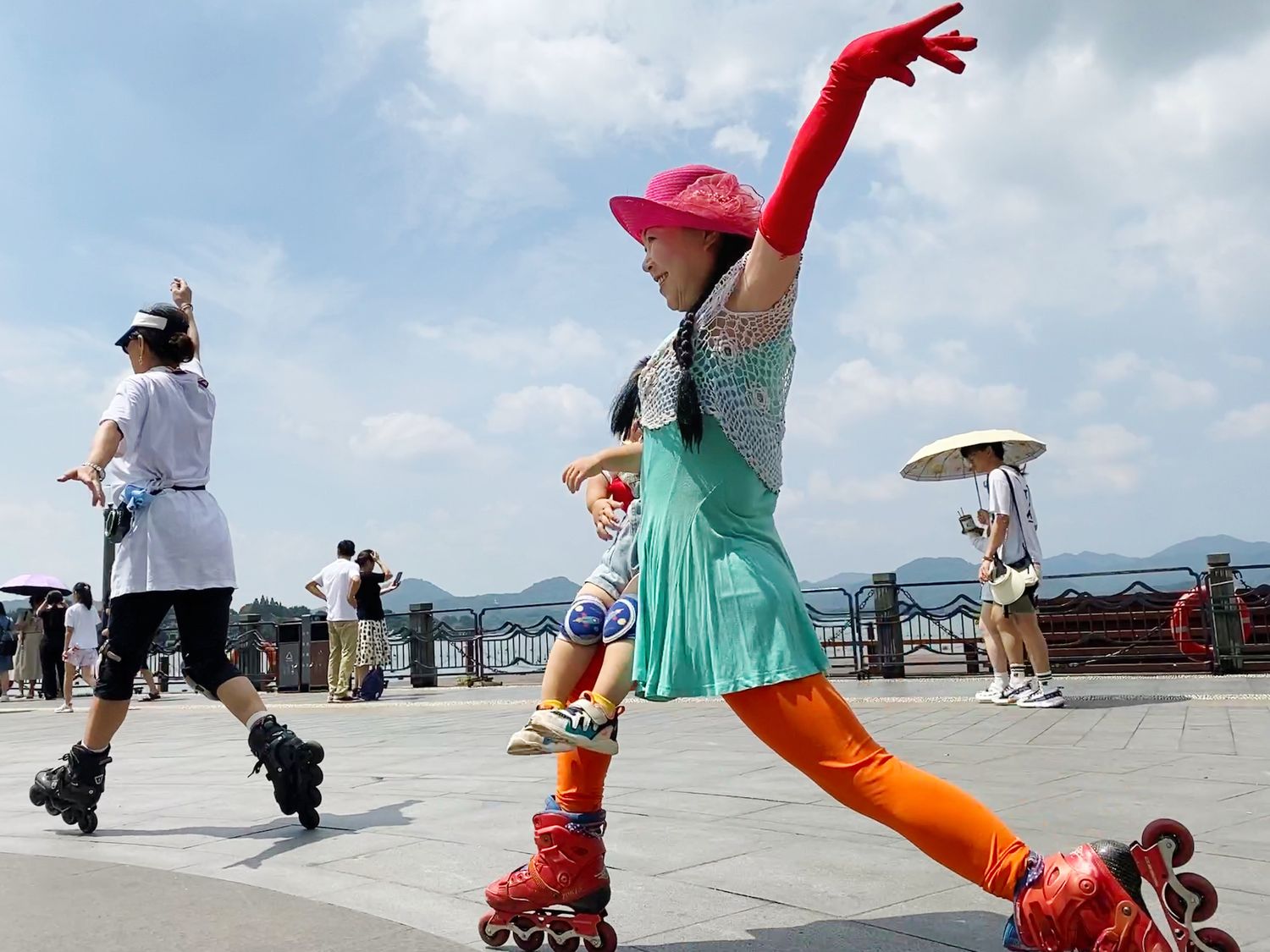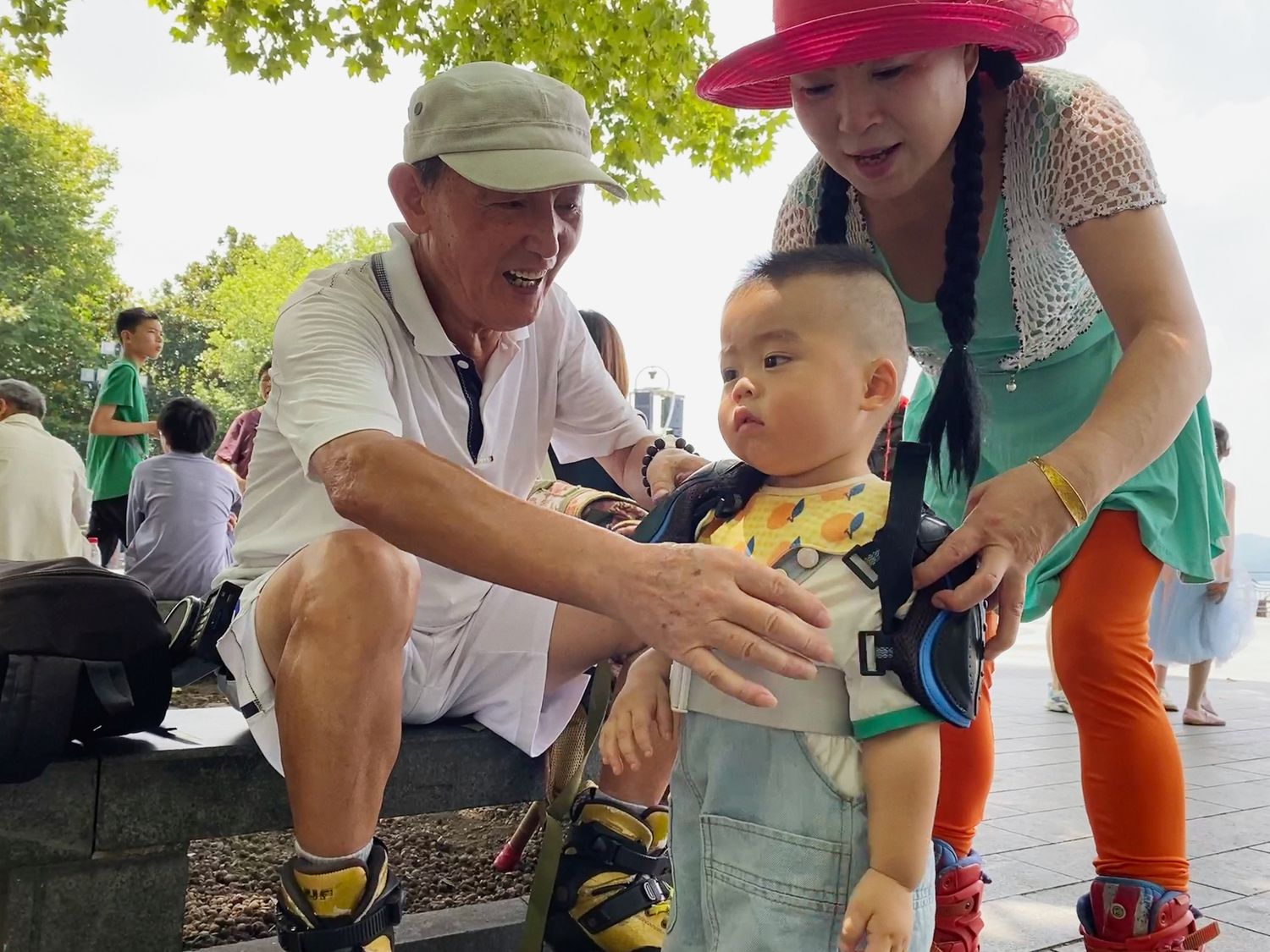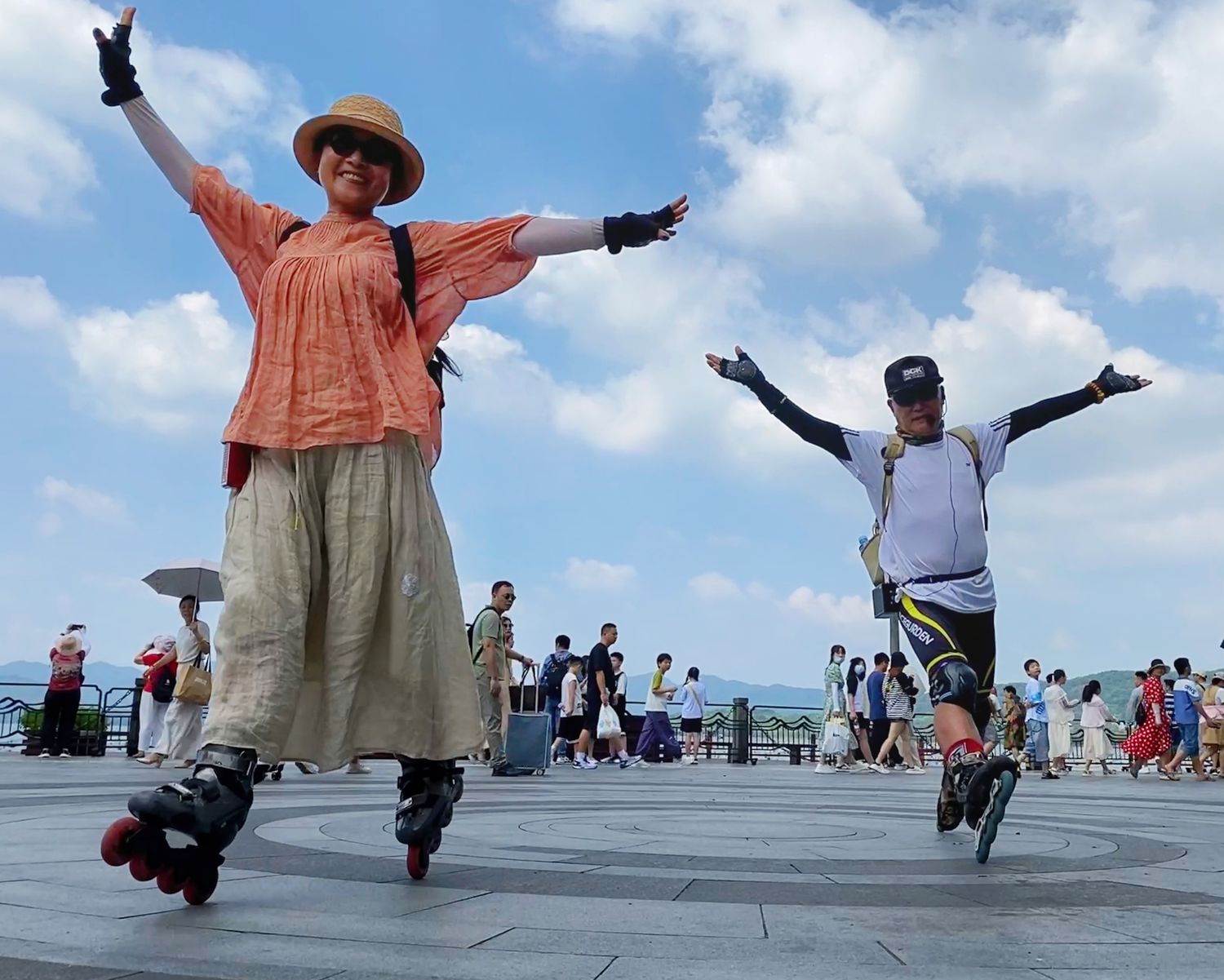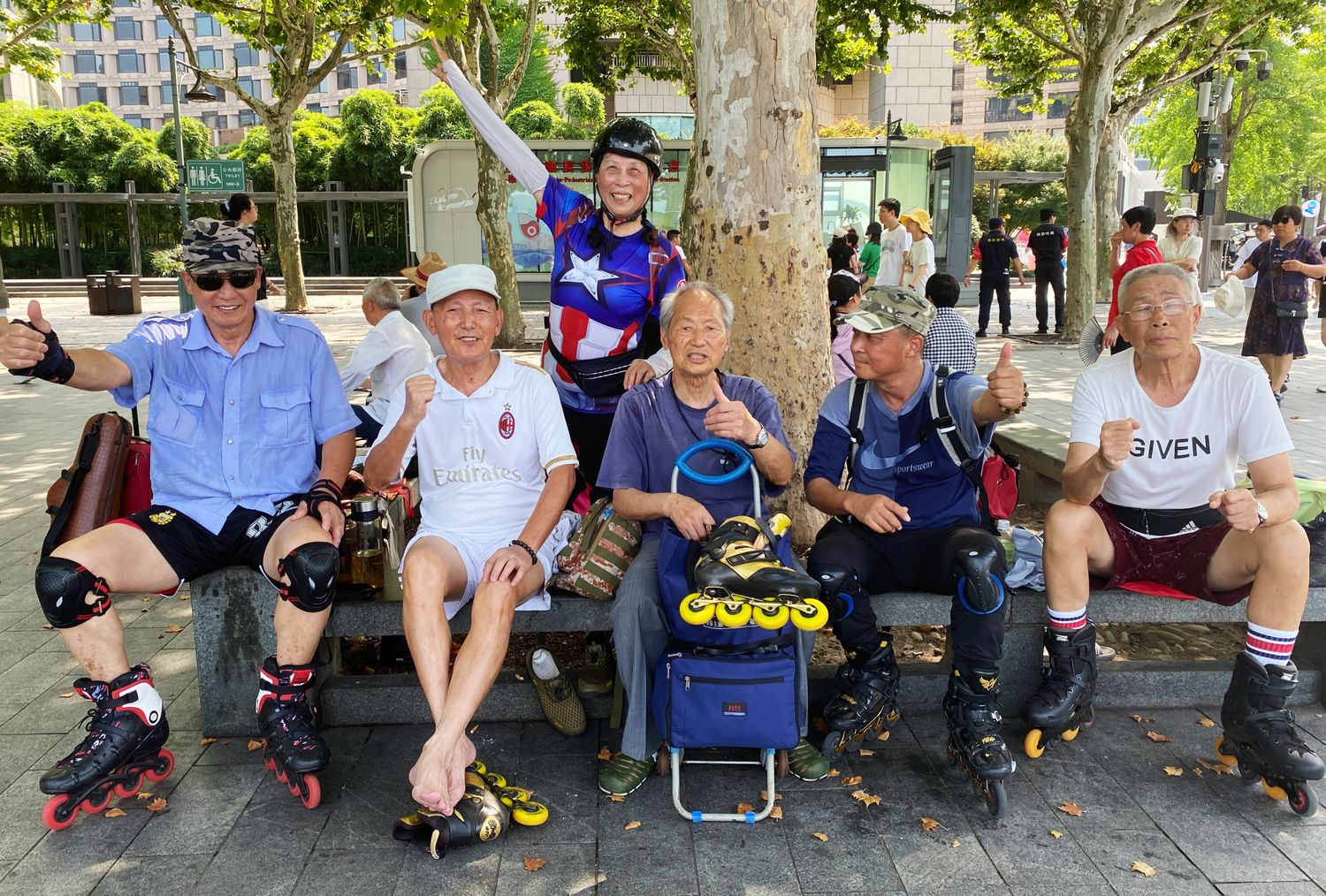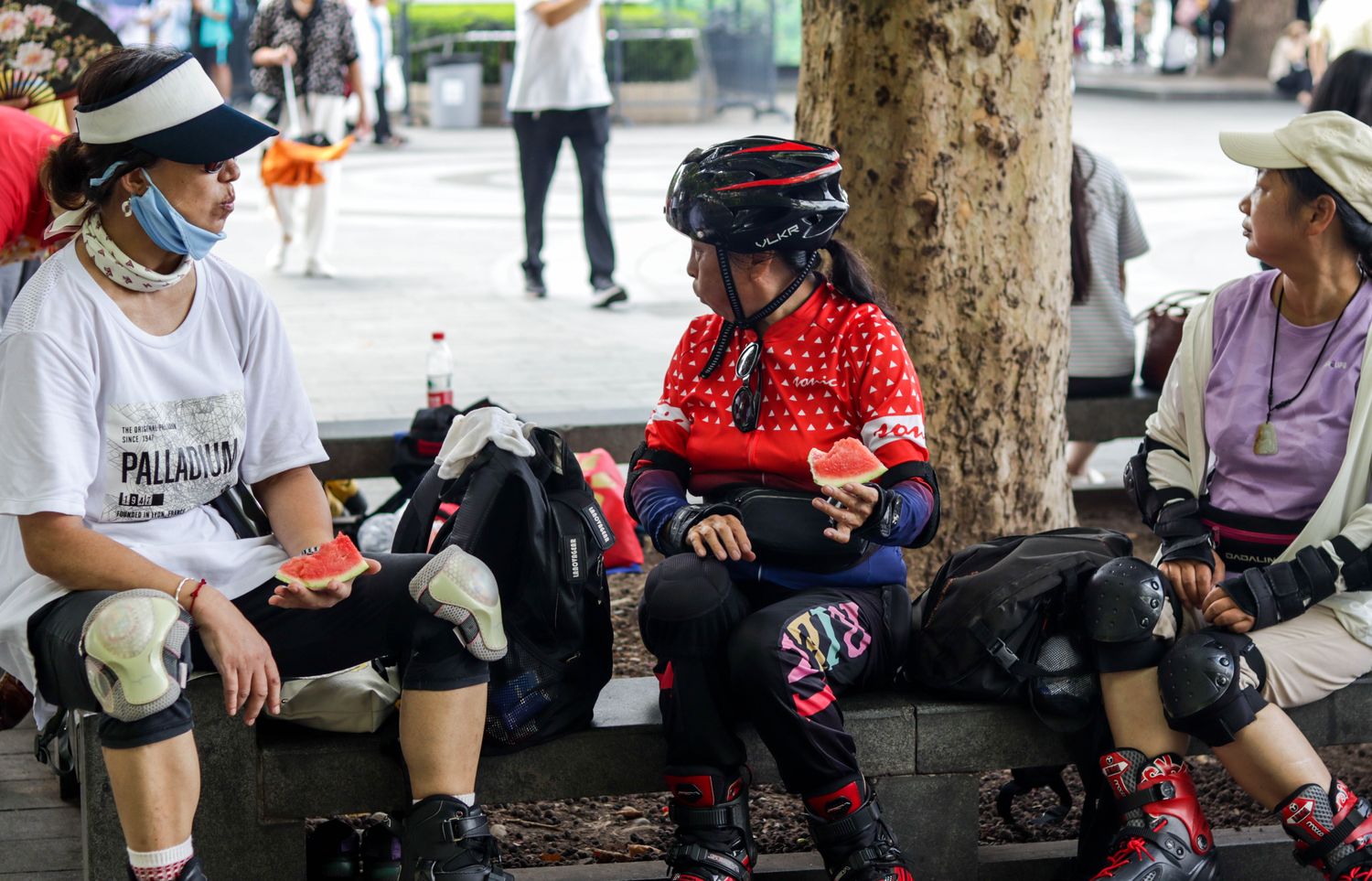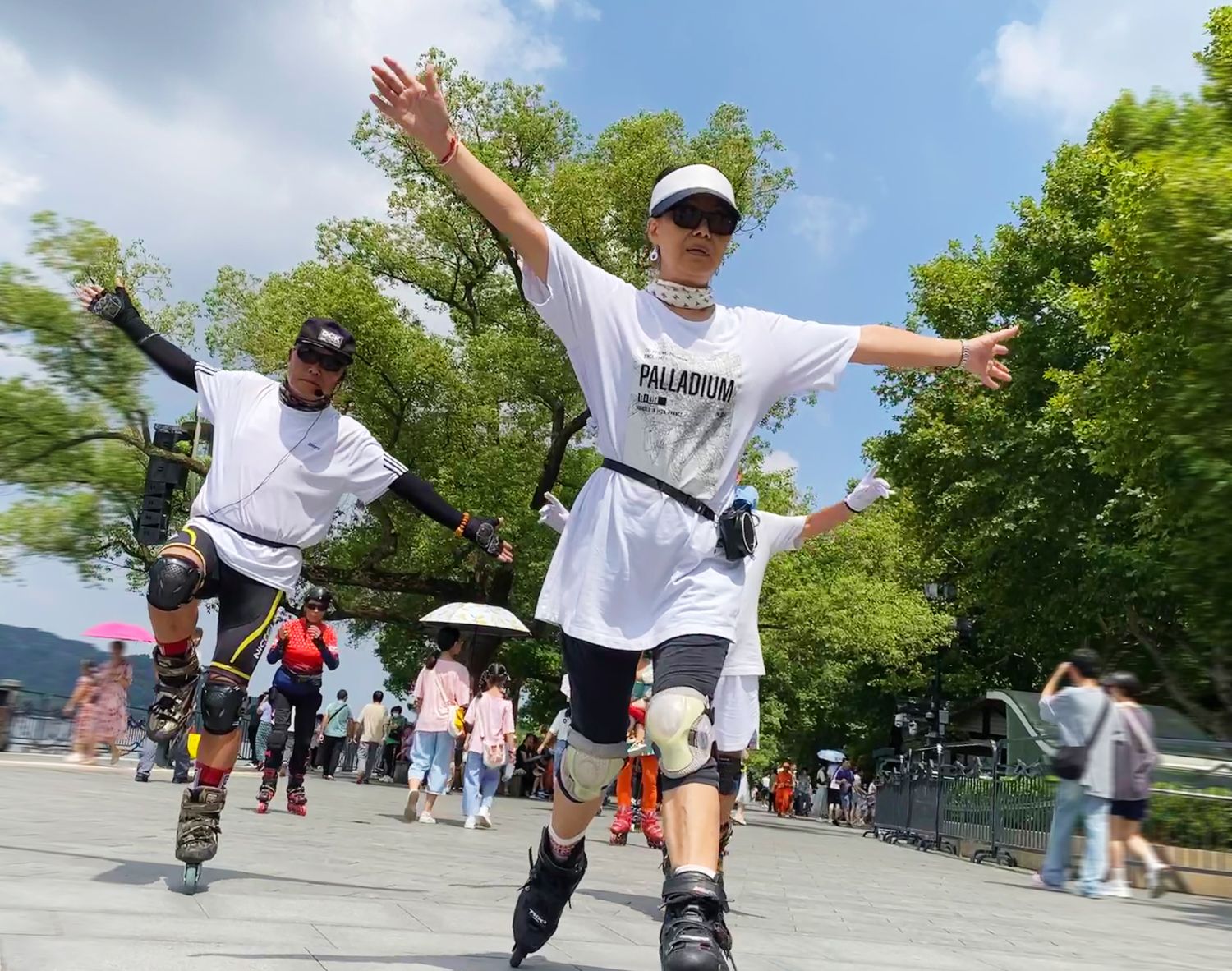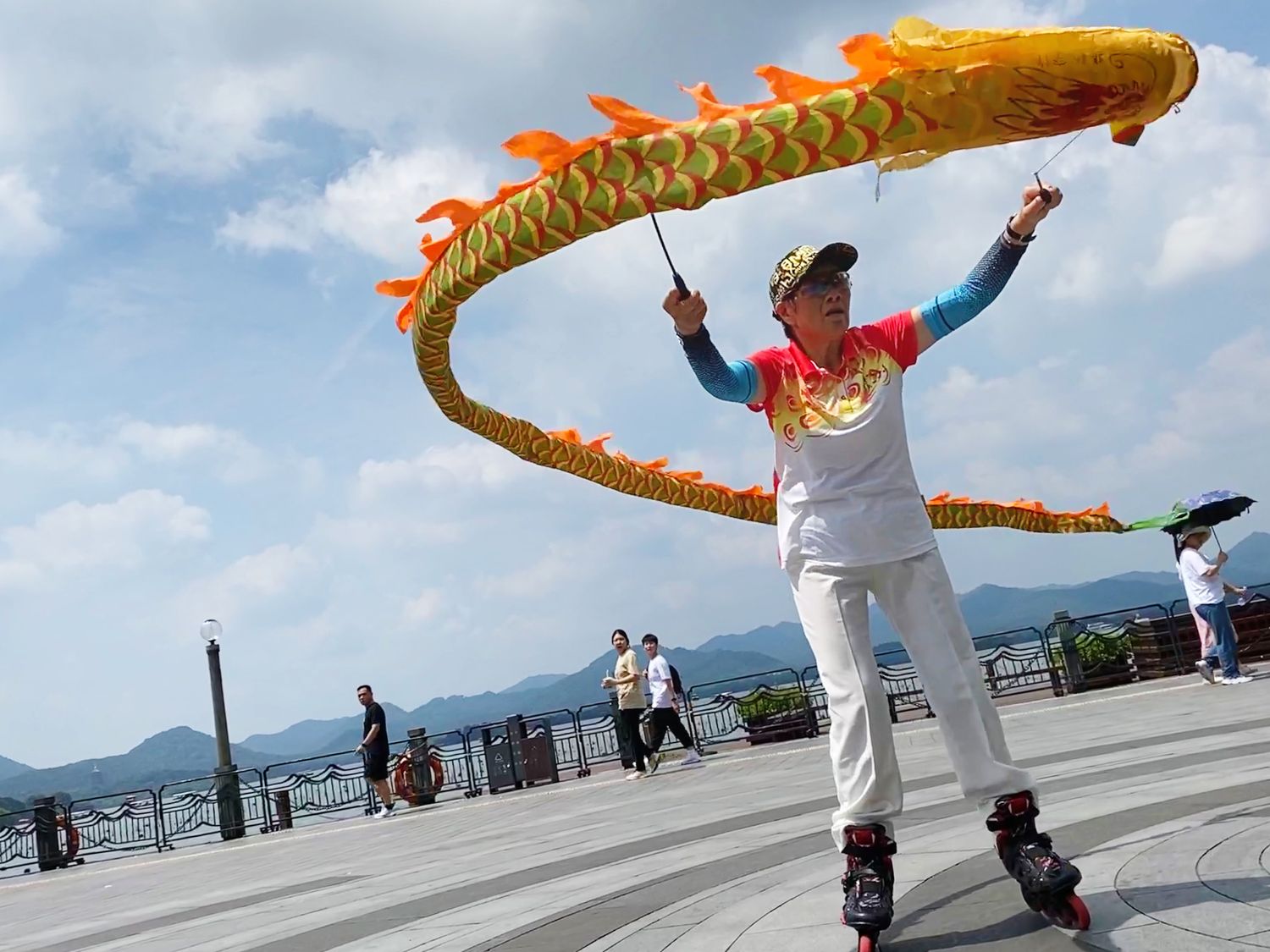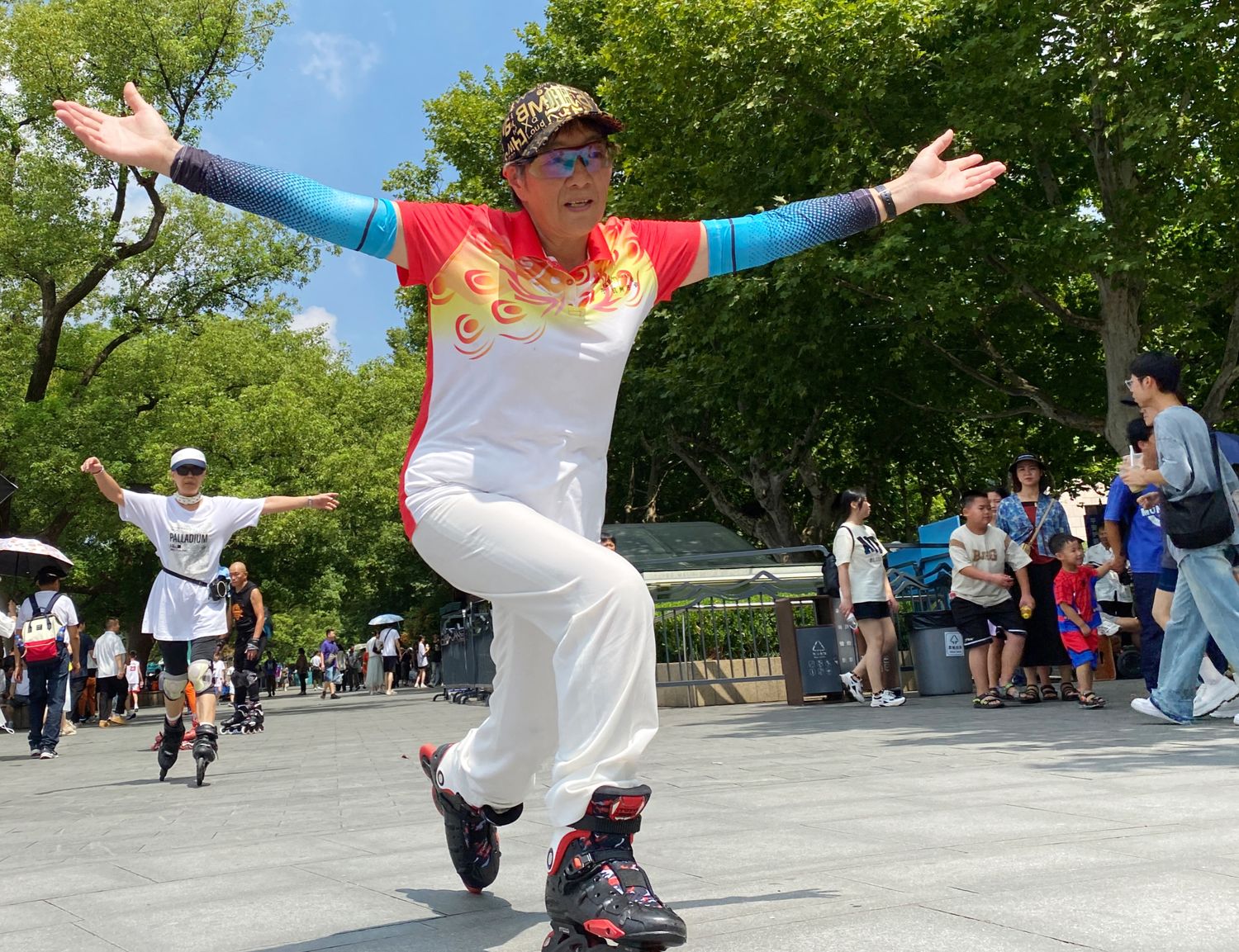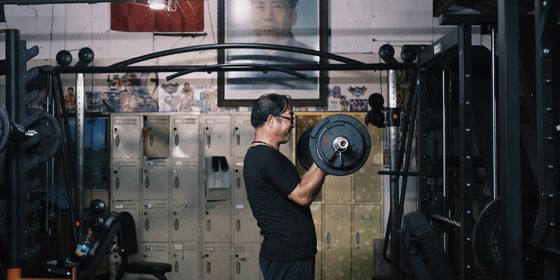Roller skating is a way to stay fit, meet friends, and rebel against social norms for this group of retirees in Hangzhou
After donning his roller skates and protective pads, 76-year-old Shou Guohang begins to glide across the square next to Hangzhou’s West Lake, skillfully weaving between the passing tourists as a nearby speaker blares patriotic songs from the last century. For the past 12 years, Shou has been skating here with a group of retirees every day from 7 to 10 a.m.
His friends call him the “Iron Man,” as he has had 13 heart stents over the last few years, with three still remaining in his body. Shou isn’t the only one with underlying medical conditions in this skating club, where the members have an average age of 70. This unconventional group of silver-haired roller skaters has been wheeling across the paths next to West Lake since 2008.
According to data from the National Bureau of Statistics, as of the end of 2022, there were more than 280 million people over 60 years old in China, accounting for almost 20 percent of the national population. Many of them aren’t enjoying a peaceful life in old age. Some are full-time carers for grandchildren while others can’t afford to retire. Those who do have time to relax have long taken to exercise like Tai Chi, square dancing, or hiking, but now some are setting their sights on something more exciting.
Roller skating, however, remains a sport mostly reserved for the young. Skaters fall often, with fractures and ankle sprains—potentially serious injuries for seniors—common. However, it’s the very risk of falling that attracts Shou to the sport.
Shou’s parents were protective of him growing up, he tells TWOC. He didn’t fulfill his dream of becoming a chauffeur because they worried he might suffer a car crash. Instead, he took a desk job at a state-owned enterprise and didn’t get a driver’s license until he retired. Though he still can’t afford to buy a car, his love affair with roller skating offers a cheaper set of wheels for him to enjoy.
Shou started skating shortly after coronary artery bypass surgery when he was 64, despite protests from his family to stay in bed and rest.
It took him over four months to master the basic skating movements, mainly by watching videos online and learning from more experienced members of the group. Back then he often fell more than 10 times a day, though he luckily avoided serious injury. “It was from constantly falling and getting up that I learned,” says Shou.
He believes skating has been beneficial to his health. “I still have strong muscles...Does this look like the muscle of an old man?“ Shou tells TWOC while showing off his biceps.
Jiang Chunhua also sees roller skating as a way for her to break free. The 63-year-old started taking care of her grandson full-time in Hangzhou in 2018. Bored at home, joined the West Lake roller skating club together with her grandson.
“At first there were mostly male members because grandmas like me have to take care of the kids and cook for the family,” Jiang says. But she’s noticed more women joining recently. “Nowadays the minds of old people are changing. We women have been putting too much attention on family our whole lives, now it’s the time for us to take care of ourselves,” she says.
With her bold choice of outfit—a rose-red hat, a mint green dress, and orange leotards—Jiang often turns the heads of pedestrians as she skates by the lake with her grandson in her arms. She has learned how to skate with the baby in the stroller as well, balancing (literally) her life as a grandmother and her hobby that makes her feel young again.
Though roller skating may be an unconventional sport for the elderly in China, its social appeal is similar to more common activities like square dancing or mahjong. At 74 years old, Luo Chenfa has been managing the grassroots skating club for the past 15 years. He finds that many senior members attend practice sessions every day not so much to acquire new skills, but rather to share their daily lives with one another. “If you stay at home for too long, you may experience a psychological void and become more susceptible to illness,” Luo says, explaining that loneliness is a major problem among seniors.
After practice, members gather in the shade to share snacks and chat with each other, often reminiscing about their youthful days. Luo calls himself a “contemporary of the People’s Republic,” as he was born in the same year the PRC was established in 1949. “We’re New China’s first group of young people, but now we’re getting old,” he sighs.
The oldest skater in the group is over 90 years old. Even though most of the skaters are in good health, members drop out every year as their bodies gradually deteriorate and they can’t continue the demanding sport. “After all, it is easy to fall and get hurt from roller skating and it is considered an extreme sport for seniors,” says Luo.
Still, Luo fights hard to keep the group together. Unlike other members who mostly experience the fun part of being in a roller skating club, Luo, as the organizer of the group, runs a WeChat group with members where he shares teaching videos, arranges long-distance roller skating trips to nearby temples, and notifies people of bad weather.
But development and construction around West Lake are a bigger headache to Luo and the other skaters. A decade or so ago, they could skate anywhere around the lake area freely. But now many sections of the lake’s shore are closed to vehicular traffic, including roller skaters, supposedly to make it more friendly to tourists on foot.
“The urban management officers tell us that any traffic with ‘wheels’ are not allowed here, but they never stop the sightseeing buses owned by the developers,” Luo says. “We have been nurtured by the water of the West Lake from childhood to adulthood. It’s unacceptable and doesn’t make sense to drive us away.”
At first, they were forced to move from next to West Lake to another street nearby with lots of potholes that made it poor terrain for roller skating. The road conditions increased the skaters’ risk of injury, so the group moved next to the lake again at West Square, despite numerous verbal battles with urban management officers who argued they weren’t allowed to skate there.
The elderly skaters eventually compromised and reached a deal with these authorities—they are allowed to skate at West Lake’s Third Park, but are forbidden from tourist-heavy sections like Baidi or Duanqiao.
Despite being limited to just one area now, more and more seniors are joining the roller-skating club. Li Li, a 73-year-old grandma, picked up the sport less than a year ago and is already a big fan. “This is the hardest sport I’ve ever learned,” she admits. “But it’s not a big deal. I’m a retired woman with plenty of time to practice!”
Photography by Shao Yefan
Rolling Past Retirement: The Seniors Fighting For Space to Skate is a story from our issue, “Online Odyssey.” To read the entire issue, become a subscriber and receive the full magazine.





